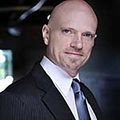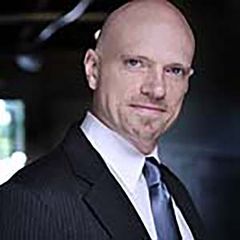After 20 years as a health and exercise professional, I look back on my early years and sometimes marvel at how I made it. In an effort to help you arrive at a more comfortable place in your career more quickly, here are four things I wish I’d known at the start of my fitness career.
1. It’s not about the equipment (even if it seems like it is).
Many gyms and studios boast about the great equipment they offer, and many individuals complain that they can’t get in shape because they don’t have any equipment at home. The reality is that, as great as the diverse array of fitness equipment is, none of it is necessary to live a healthy life. What everyone needs is an awareness of, and an ongoing connection to, their emotional motivators. This is the core reason fitness matters, or as I call it, the “emotional relevance of exercise.” Without knowing what truly motivates someone to pursue health, life’s inevitable obstacles will easily throw them off track.
2. Selling is not such a big deal.
One of the hardest parts about being a rookie trainer is getting comfortable selling yourself. Rick Richey, owner of ReCover studio in New York City, thought his gym’s prices were too high for personal-training services. As a result, he was always uncomfortable asking for the sale. Today, if he could talk to his younger self, he would say, “Can you control the price of training? No. Stop putting your discomfort on others and just give the price and allow them to decide for themselves if it is too high. All we can do is offer the best service and increase our value.”
What helped me with getting over the idea of selling my services was to notice how willing people are to pay a premium for something once they want it badly enough. The key for me was to switch from an inner feeling of apologetically asking to set up training sessions to one of developing a greater perceived value before even asking for the sale. This simple shift took most prospective clients to the point of “Where do I sign up?” Getting them excited about the journey made the difference. Rather than focusing on “what” the training would do for them, I would find out “why” it mattered for them and then speak to that in discussing the value of training.
3. Social Contagion Theory
When leading change, we have to examine the social, familial and professional networks with which our clients interact. In 2007, researchers found that people were up to 57% more likely to become obese if a friend or family member also became obese during a certain period of time. It’s a bit like peer pressure, but more insidious since the influence is passive rather than active. And the closer our relationship is to an individual, the stronger the influence of his or her behaviors on ours. In the beginning of my career, I didn’t investigate the support network at home, the office environment (e.g., availability of junk foods) and what types of activities clients shared with their friends (e.g., hiking vs. drinking). These are all tremendously influential factors in behavior change and we need to investigate them with clients to help them take steps to overcome challenging circumstances.
4. Fitness isn’t just about the workout or the instructor.
Without a marketing plan, a place to do business and someone keeping the place clean, we can’t have fitness success. As the health and exercise professional, you are the focal point during a class or training session, but all of the other aspects of the experience that clients have in the business matter as well. As Steve Feinberg, creator of Speedball Fitness says, “I wish I had understood the politics behind the fitness industry earlier on. This would’ve made many things much easier in my progression as a fitness professional. There are the educated personal trainers and exercise scientists, and then there’s the talent-based performers and class commanders.” In other words, it takes more than a highly qualified health and exercise professional to deliver an exceptional and effective experience for the client, so make sure you surround yourself with the best team you can find.
It's never too late to learn and to expand your client offerings! Check out other ACE Certifications or ACE Specialist programs, such as the Corrective Exercise Specialist program.




 by
by 



